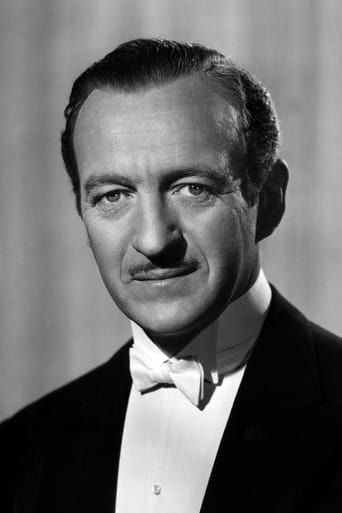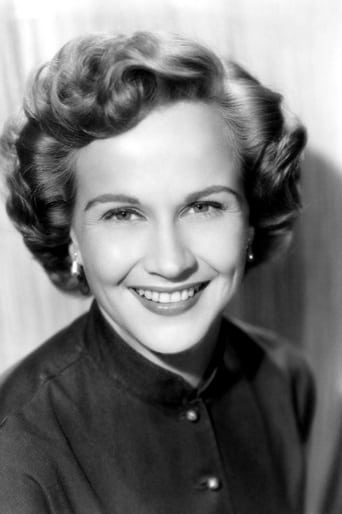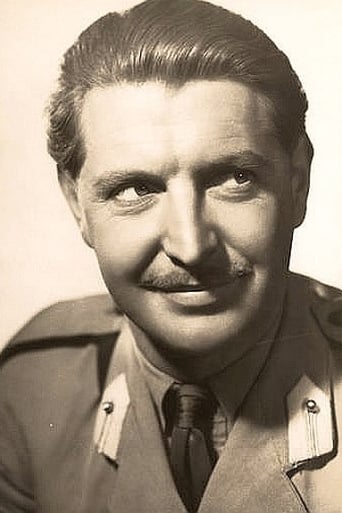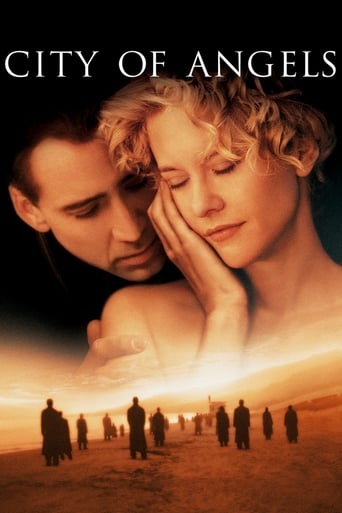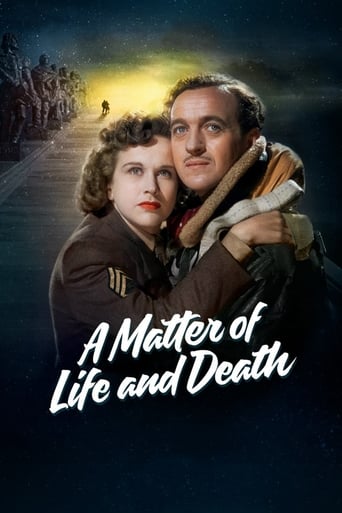
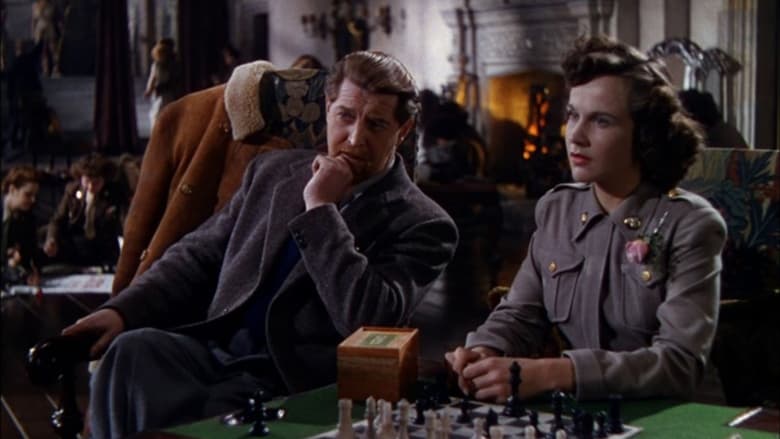
A Matter of Life and Death (1946)
When a young RAF pilot miraculously survives bailing out of his aeroplane without a parachute, he falls in love with an American radio operator. But the officials in the other world realise their mistake and dispatch an angel to collect him.
Watch Trailer
Cast
Similar titles

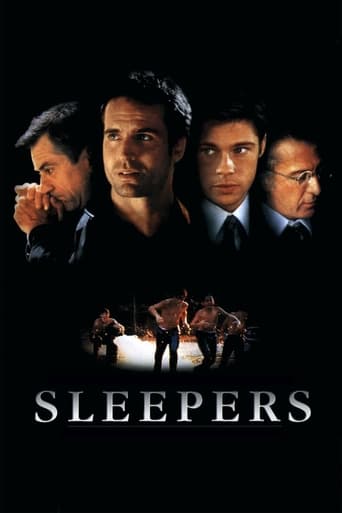
Reviews
Strong acting helps the film overcome an uncertain premise and create characters that hold our attention absolutely.
A terrific literary drama and character piece that shows how the process of creating art can be seen differently by those doing it and those looking at it from the outside.
True to its essence, the characters remain on the same line and manage to entertain the viewer, each highlighting their own distinctive qualities or touches.
It is neither dumb nor smart enough to be fun, and spends way too much time with its boring human characters.
I love this film. My father flew bombers in the RAF during WWII and told me the sequence at the beginning was the most realistic representation of a damaged aeroplane in flight he had seen in film. Having said that this is not a war film, it is a charming tale of love, friendship, life and, of course, death. David Niven is his usual convincing self but he doesn't dominate the film in which he stars. (Though it must have been his influence that caused one character to be named Trubshaw.) Roger Livesey, Kim Hunter, and the excellent Raymond Massey make this a rounded film with their portrayals of developed characters. It is beautifully filmed, Kim Hunter's bicycle ride along the beach somehow enchants me. It is a good tale well told and acted. I highly recommend it.
A British wartime aviator (David Niven) who cheats death must argue for his life before a celestial court.Another reviewer wrote that this film is, quite simply, the greatest movie ever made. I might object to that slightly. For me, that honor is currently held by Carol Reed's "The Third Man". But I agree with the general sentiment. While Michael Powell may be better known for "The Red Shoes", I would argue that this might be his true masterpiece.There is the romance, the humor, the mix of fantasy and reality blended together perfectly. This also happens to be a courtroom drama. Just about any genre could find a spot in this film. Well, besides perhaps horror. But it really is a nearly perfect film... and I cannot think of anything that might make it more perfect.
Michael Powell and Emeric Pressburger wrote and directed "A Matter of Life and Death," or "Stairway to Heaven," a fantasy in 1946 and starring David Niven, Kim Hunter, Marius Goring, Robert Coote, Richard Attenborough, Raymond Massey, and Roger Livesey.During and after the war, there were many films about angels, heaven, and spirits after death: "It's a Wonderful Life," "Here Comes Mr. Jordan," "The Bishop's Wife," "Heaven Can Wait" -- the loss of loved ones was part of the collective unconscious. "A Matter of Life and Death" concerns a flyer, Peter Carter (Niven) who is about to die -- his plane and parachute are damaged. He is able to contact someone on the radio, June (Hunter), an American working for the USAAF. She wants to help him, but there's nothing she can do. He has accepted his fate and just wants to hear her comforting voice. If it's possible to fall in love with such a brief contact, they do.Carter jumps out of the plane rather than burn up. He wakes up - still alive. Because of the fog, the "Conductor" from the beyond couldn't find him when it was his time to go. The Conductor does find him 20 hours later. By then, Peter and June have met and know that they are in love. He doesn't want to die, he wants to stay on earth.Carter decides that what happened was through no fault of his own, and he should have a second chance. He is told that he can appeal his case.Was this a dream as a result of brain damage suffered by Carter, for which he later has surgery? Or did he really go to trial in heaven? It's left ambiguous, though some have interpreted it one way or the other.Whether it's a dream or not, it's a beautiful film by the two masters, and beautifully acted. David Niven, always charming and relaxed, is a sympathetic character, as is Hunter, who gives a lovely performance. This film perhaps gave Marius Goring his best role, as the flamboyant Frenchman, the Conductor, though he mainly played character roles effectively. One of the striking things about the film, besides the 5000 extras(!) are all of the young men in uniform pouring into heaven. We only see the reception area, so we don't know what happens after that. It is a sobering sight, and one that didn't surprise any audiences in light of World War II.I love most of Powell-Pressburger films, The Red Shoes and Black Narcissus being my favorites, but this one is up there, too.
This movie begins with a prologue announcing that the movie is story of two worlds, the first of which is that of our life here on Earth; the second, in the mind of a young airman. This is followed by a disclaimer of any resemblance between this imaginary world and any other world, known or unknown. I guess they didn't want to be sued by Heaven for slander, which would have been justified, because it is the worst depiction of Heaven ever imagined.Granted, no depiction of Heaven has ever succeeded in making it look like a place where anyone would want to live. Its minimal appeal is that it is better than no afterlife at all. But this particular Heaven really is the pits. First, it is colorless, both literally and figuratively, with only the scenes on Earth being in color. Second, it is lifeless, both literally and figuratively, for with the exception of the new arrivals (who are in such a jolly good mood, they get on your nerves), everyone else in Heaven is lethargic and dull. Third, souls in Heaven are prudish beyond all reason. We all know that there is no sin in Heaven, which is part of what makes it so boring, but in this Heaven, you are not even allowed to say, "Holy smoke!" Fourth, there is no love in Heaven, but there is hate. Conductor 71, having dismissed love as the feeling of the moment, says that the prosecutor in Peter's case hates Peter's guts, as part of a hatred for the British that has lasted for two centuries, on account of his having been an American killed by the British during the American Revolution. This hatred turns out to be petty and spiteful beyond belief.Apparently, Heaven in this movie is really caught up in World War II, because they have a special Aircrew Section just for the pilots of the Allied forces. We never get to see the Aircrew Section for the Axis Powers for some reason. The receptionist, or whatever she is, shows a newly arrived pilot where they keep the files on everyone on Earth: Russian, Chinese, black or white, Republican or Democrat. She doesn't mention anything about the files of Germans, Japanese, or Italians. Gosh! You don't suppose they all went to Hell, do you?I suppose one of the reasons for announcing in the prologue that this is just a world of the imagination is to keep us from being critical, as if only reality can be criticized. Well, all I can say is that the guy who imagined this has one of the drabbest imaginations ever imagined. That guy in question is Peter Carter, who bailed out of a burning airplane without a parachute, but somehow did not die. Or he did die, and the movie is mostly his hallucinatory dream on the way down. Well, real or imagined, it is deserving of criticism either way. Or, let me put it this way. The people who really imagined all this were Michael Powell and Emeric Pressburger, and they are the ones who really get the blame, not the pilot in the movie.The plot of this movie is the opposite of "Here Comes Mr. Jordan" (1941), which was remade as "Heaven Can Wait" (1978). In those movies, Joe Pendleton dies and goes to Heaven before he was supposed to, and Mr. Jordan, who is in charge of these things, has to find a new body for Joe and send him back to Earth. In "Stairway to Heaven," on the other hand, a man who was supposed to die and go to Heaven remains on Earth accidentally, and steps are taken to get him to go to Heaven, where he belongs. In the Mr. Jordan movies, we are exasperated that Joe would still care so much about his life on Earth once he knows that all that stuff about God and Heaven is true. That knowledge should be life transforming, but Joe just wants to get back to doing what he was doing before. I guess some people are hard to impress. But in the present movie, once we see what a dreary place Heaven is, we cannot blame Peter for wanting to put off the day when he will have to go there too.Just about the time we have settled into the idea that this business about Heaven is the hallucination of a man who has jumped out of a plane without a parachute, it turns out that his hallucinations are caused by a brain tumor, the symptoms of which began six months before he jumped. So, is the tumor also the hallucination of a man who is falling to his death, or is the leap out of a burning plane the hallucination of a man with a brain tumor?Anyway, brain surgery is performed on Peter while his trial is taking place in Heaven. Ultimately, it comes down to a question of which should prevail, the Law of Heaven, or love on Earth. Finally, June, the woman Peter loves, is willing to die in Peter's place, thereby proving that she loves him, the result of which is that they both get to live. The judge quotes Sir Walter Scott's poem about how love conquers all, the last line of which says, "For love is heaven, and heaven is love," an assertion that stands in contradiction to all that has come before. At the same time, the surgery back down on Earth proves to be a success.So, Peter and June will get married and live happily ever after. Or rather, they will be happy until they die. Then they will go to Heaven and have to exist in that dreadful place for eternity.
